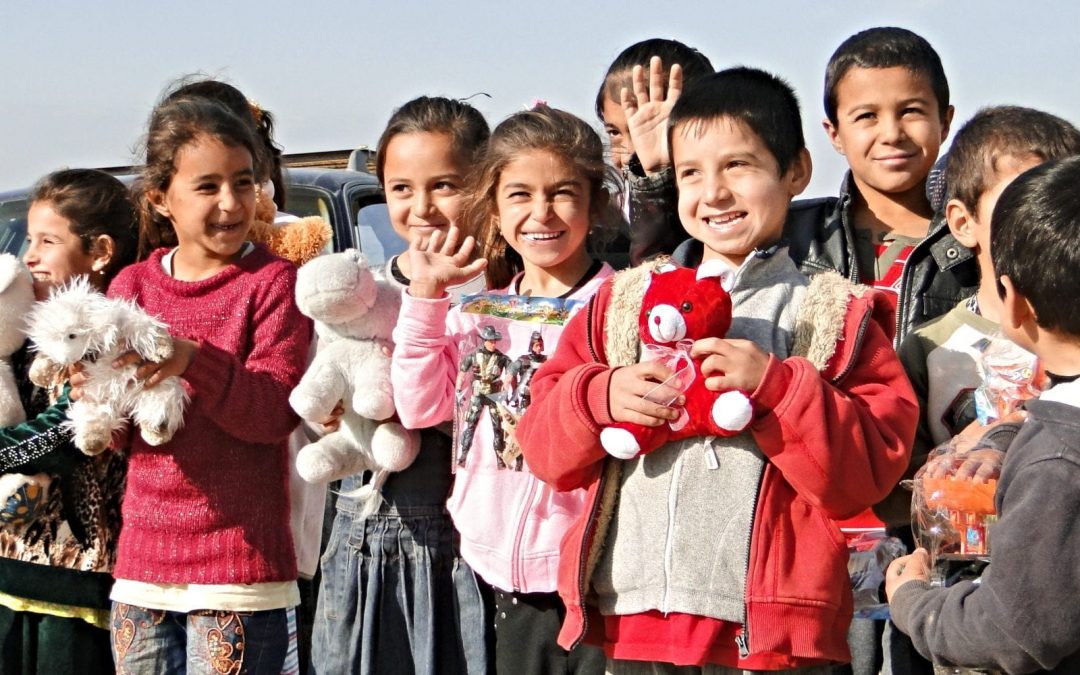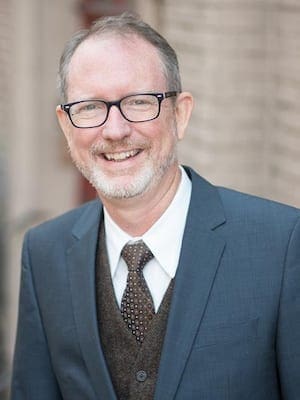We talk a lot today about religious freedom.
Sometimes, the conversation devolves into the discussion of being forced to provide appropriate accommodations in the public space (like a business baking a “gay” wedding cake).
Sometimes, it’s about religious displays on public property. For example, the current U.S. government just argued that a monumental cross was not a religious symbol (see Baptist Joint Committee’s Hollyn Hollman’s piece on this).
These conversations are important. They matter to people of faith. They shouldn’t be discounted, but we should also put them in perspective.
For a significant portion of the globe, the lack of religious freedom isn’t just a matter of having to serve a population they dislike, nor is it debating a religious symbol on government grounds. It’s a matter of life or death.
For example, the Yazidis of Iraq and Syria have experienced the kind of persecution that is hard to fathom.
For centuries, this peaceful and pastoral people have experienced periodic hatred by neighboring Muslims and Christians.
The Yazidis are a monotheistic ethnic group originating in the Kurdish region of Iraq and are considered by the Kurds to be a minority Kurdish group.
But the Yazidis are not Muslim and do not consider themselves to be Kurds. While they are monotheists, they are different enough to have been considered at times “devil worshippers” by superstitious neighbors.
In 2014, ISIS fighters in Iraq killed approximately 7,000 Yazidis in a genocide that baffles the mind.
Shortly thereafter, the ISIS fighters started taking young Yazidi girls and women as sex slaves. There are still today about 3,000 young women missing.
Possibly, you saw the clip of the young Yazidi woman, Nadia Murad, a co-recipient of the 2018 Nobel Peace Prize, who discussed her situation with President Trump last week.
Her story is tragic, and that tragedy is multiplied by the fact that many young women like her are still missing. Let’s pray that indeed the president will “look into it.”
In June, Paula Dempsey (director of partnership relations at the Alliance of Baptists), Becky DeLaune and Sara Kelm (of Broadway Baptist in Fort Worth, Texas) and I went on a pilgrimage to Tbilisi, Georgia.
Our host was Georgian Baptist leader Malkhaz Songulashvili, who has developed good relationships with the Yazidi people living in the Tbilisi area.
We were there on orthodox Pentecost, which coincided with an international Yazidi festival at the temple in Tbilisi.
The four of us Americans, with our Georgian hosts, were guests of the Yazidis and treated as family. The festival included prayers, a flag-raising, an introduction to a new theological institute and lots of very good food.
However, the most significant part of the day for me were the many conversations we had with the Yazidi people – many of whom had come in from Iraq, Syria, Germany and other surrounding areas.
On the lighter end was the Yazidi executive from Iraq who came up to Malkhaz and me to request a photo. He’d never before met Christian clergy! I was glad he considered meeting us a photo-positive event!
On the darker end of that very full day were the conversations we had about the missing 3,000 young women and girls and the fear that the people living in Iraq don’t have any sense of real protection from persecution because of their faith.
Some of the missing young women have been recently ransomed. Some family members don’t have the means to do so.
The situation is complicated by a religious “liberty” law. The law in Iraq dictates that any child born to a Muslim man is Muslim. This complicates the reception of these women and children back into the Yazidi villages.
For this people group, religious liberty isn’t a cake issue or a cross issue. It is life or death.
We should hope that the current efforts of the State Department to advance religious freedom show progress.
And in particular we should do what we can to encourage the U.S. government to do all it can to assist the Yazidi people. The Unites States bears unique responsibility in Iraq.
Those of us who had tearful conversations with the Yazidi people have promised to do all we can to advocate for action. This has, and will happen, at both the State Department and the United Nations.
Remember these efforts while keeping in mind that religious liberty is far from a luxury issue for far too much of the world. There is hope in growing awareness.
One of the United Nation’s newest “international days” is the day of remembrance for victims of religiously based violence on Aug. 22. May memory and awareness lead to life-saving freedoms.
Stearman directs the International Advocacy Baptist Collaborative that seeks to amplify and coordinate the advocacy work of the global Baptist family at the United Nations and in WDC. He is vice chair of the board of trustees for the Parliament of World Religions and writes regularly on the intersection of religion and international/cultural affairs. For over three decades, he served as a pastor in the Christian (Baptist) tradition. His educational background includes theological degrees from Southwestern and Princeton Seminaries and a Ph.D. in philosophy from the University of Oklahoma.


